After a long-awaited five years, “Street Children” debuted at the right moment, giving us a space to feel hope and heal. Playing at the New Ohio Theater now through December 17, “Street Children” gives viewers a window of validation into their own lives—connection, community, love, pain, and laughter. The play is ultimately about always moving—the inability to take a break; about how death happens and how the LGBT community and people of color have to keep going. Nothing stops. It unfolds in each relationship, and every moment of solitude, and meditation throughout the production.
“Street Children” is really about those hard moments of trying to process what it’s like to lose a family member. What it’s like to feel that emptiness of having someone so close to us get taken away by the street itself. The space we live in and work in and love each other in is the same space that evokes violence against us.
“Everybody had a moment,” Pia said. “Everybody had moments of real, real honesty and deep pain, you know. And then once that was said, and it was out there, and everyone listened, everyone grew. Each person talked about their own personal story so we could grow. We were able to get to a point where we were so honest with each other.”
To find her non-traditional cast, Pia went to spaces like Act Out, an LGBT-focused theater class, then spent two weeks with the actors.
“[I wanted to] create a safe space for [the cast] to be themselves, to feel like [they] could be honest,” Pia said. “Also I don’t know everything. I can’t just walk into the room and say, this is what you’re going to do. It’s not like that. For this play, it needed to be a collaboration—a real collaboration.”
“Street Children” is not only about us looking through our windows at what’s happening outside, but it also allows us to look within, and to look at each other; to those close to us. It helps dig into feelings of anger and frustration with the families of lovers and friends who have been torn away too soon. For our friends who are spoken about in unfamiliar ways at their funerals, in the papers, in the news. For our friends who were at Ghost Ship in Oakland this past weekend. For my friend, the best femme I know who took her life a few months ago. “Street Children” gives us the opportunity to process it.
“There’s a word that’s said a lot in the sound booth: Rebuild,” “Street Children” star MJ Rodriguez said. “We are rebuilding. … That stood out to me. That’s what [we] have to do. We have to rebuild. We can’t hold on. We can’t let it fester. We have to create space to breathe and space to move forward and help others. ‘Cause we will be stuck. And I’m saying it because I’ve went through the same exact situation. Create the space, and rebuild. And start from zero.”
“Street Children” is really a reminder of us rebuilding our communities and keeping momentum going for and with each other in our time of grief.
“I noticed silence is extremely important,” MJ said. “Because you have time to think, and you have time to process, to do so many things through silence. When I started developing this character individually at home, I noticed that death is silent. Very quiet. The people that come are loud. But the situation itself is so quiet, and no one really takes the time to sit in silence.”
“Street Children” adds a touch of magic realism into performing grief, flashing from present to past to the future. It offers the opportunity to see how we grieve, and what it’s like to finally feel whole again. There are moments of conflict, then moments of protection, and in those moments, the chorus played such an intense role, exaggerating the pace of time.
Whether it be drug-induced spirals inside the monologue of a character, or complete privacy and solitude in protective moments, “Street Children” moves swiftly and slowly through the lower Hudson piers. The audience is taken into the minds of the characters who are dealing with real things that the LGBT and POC communities deal with daily: feelings on our own queerness and varying identities, on passing or not passing, getting “real” jobs, maintaining relationships through grief, anger, and pain. We are able to share memories with the characters—those of meeting, sharing moments through dance, and through loving.
After a recent performance last Thursday night, audience members and production crew came together to talk about experiencing “Street Children” and what we can take away from it. What came across strongly is this play is for our community. The art we create speaks. The art we create is a call to action. Pia’s writing, brought to life, is a call to action.
“This play is a really fast train,” Pia said. “It’s merciless. That life was merciless. There was no mercy. And it’s not was—it still is, now. You don’t get to take that much of a breath. You aren’t allowed to stop until the end.”
“I hope the people understand that there’s no time to breathe,” MJ said. “I hope they understand that our lives—we have no time to breathe. We have to constantly keep going. Maybe if they can see that through this play, maybe they can continue that in real life.”
“Street Children” is running through December 17th at the New Ohio Theatre at 154 Christopher St.
This review is dedicated to my beautiful friend, Amanda Arkansassy Harris. May you rest pretty my love. This review is also for friends and community in Oakland who are feeling loss. For anyone who is feeling loss.

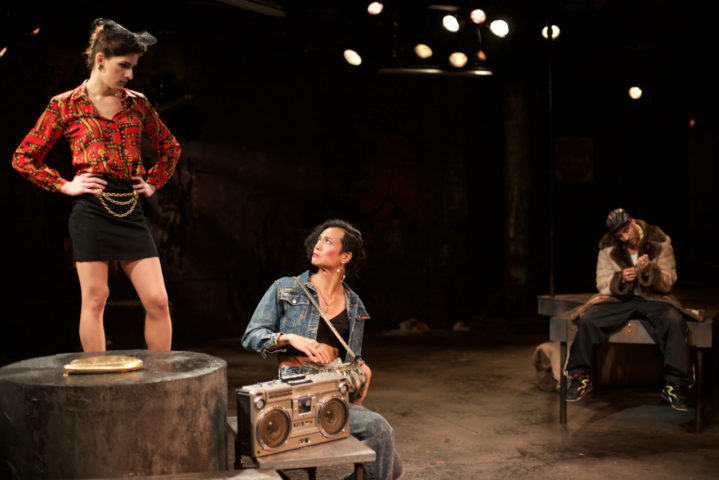
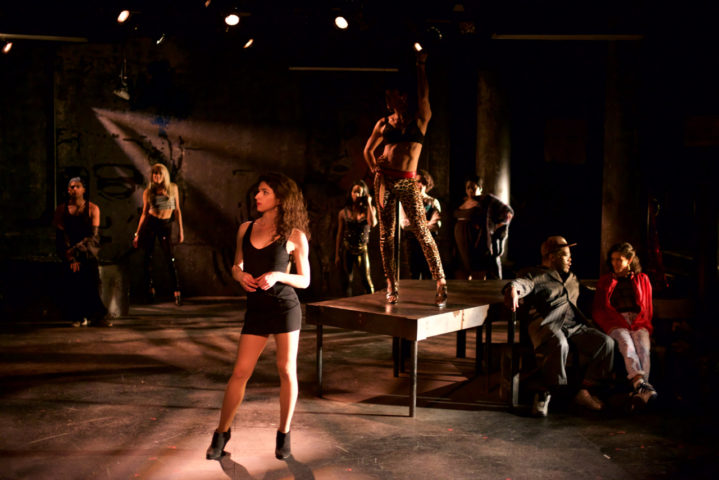
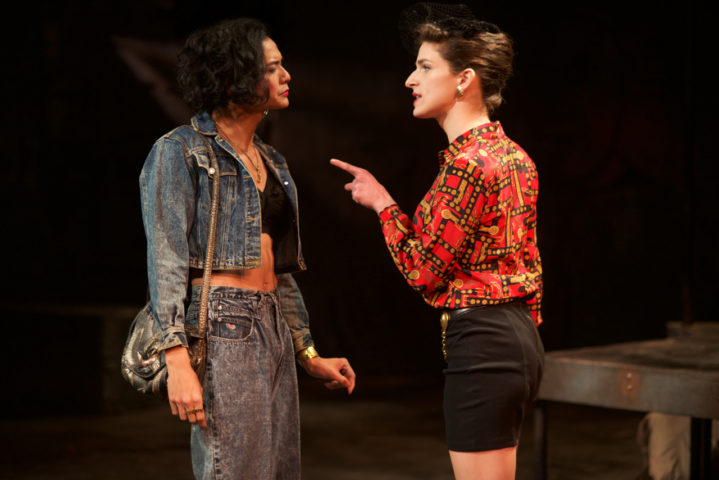
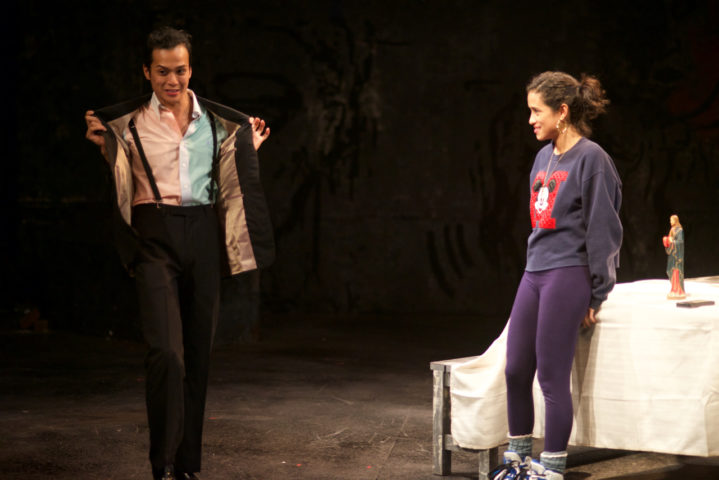
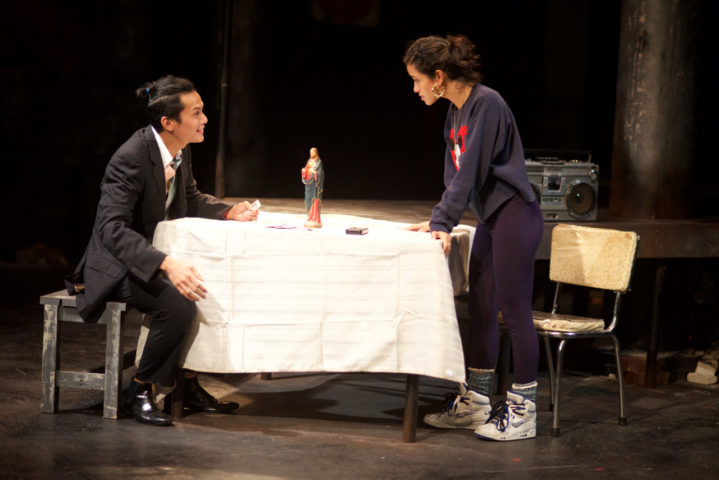
What Do You Think?